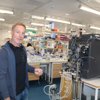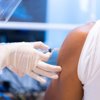Fritextsökning
Artiklar per år
Innehållstyper
-

Ingrid Lönnstedt: What does the p-value mean?
The smaller the better, and preferably smaller than 0.05. A p-value smaller than 5% means that the treatment effect is statistically significant at 5% significance level. But what does that mean? Read Ingrid Lönnstedt´s column to learn more.
-

Karriärcoachen: Så får du arbetsmarknadens mest eftertraktade egenskap
”Hur ska man kunna hänga med?”. Det är en fråga många ställer sig när den tekniska utvecklingen nu rusar fram. Men, enligt karriärcoachen Tina Persson ska du fokusera på något helt annat.
-

Samuel Lagercrantz: We are currently seeing medical breakthroughs in these areas
Samuel Lagercrantz, Editor in Chief of Life Science Sweden, lists three medical fields in which we are currently seeing major breakthroughs and two fields in which we can see some long-awaited positive developments.
-

Mathias Uhlén’s protein atlas is recognised as a global resource
The Human Protein Atlas is the first database in Sweden to be designated a Global Core Biodata Resource. According to Mathias Uhlén, this is a quality hallmark and an opportunity for additional collaborations.
-

Anna Törner: The clinical trial – Periscope to reality
What happens to the patients in the clinical trial is not very interesting, writes Anna Törner in a column.
-

A vaccine the world is waiting for: “It can change the lives of many”
Manager.
-

The art of building a biologic drug
The first biosimilar from Xbrane Biopharma was launched earlier this year, and several more are under development at the company’s facility in Solna, Sweden. “We do everything in-house ‒ from DNA fragments to a final process,” says David Vikström, Chief Technology Officer at the company.
-

Study: Vaccination linked to lower risk of post-COVID
The risk of developing post-COVID after a COVID infection was reduced in vaccinated people, according to a new study from the University of Gothenburg.
-

The Swedish innovation model: “There is a paradox”
It is often said that Sweden is strong when it comes to innovation, but how well are we turning that innovation into actual medicines?
-

Eli Lilly to build a USD 2.5-billion plant in Germany
US-based Eli Lilly is planning a huge investment of USD 2.5 billion, equivalent to around SEK 26.5 billion, in a new production facility in Alzey, Germany.
-

Ny chef på Key2compliance: “Lite mindre konventionell”
Affärsutvecklaren och projektledaren Jeanette Demorney blir ny affärsområdeschef för clinical development på Key2compliance.
-

Novo Nordisk to invest billions in Danish manufacturing facilities
Danish pharmaceutical giant Novo Nordisk is investing DKK 42 billion, equivalent to around SEK 65 billion/EUR 5.6 billion, in its manufacturing facilities in Kalundborg, Denmark.
-

High biological age is linked to a higher risk of dementia and stroke
It is a well-known fact that people age at different rates, and a recent study at the Karolinska Institute suggests that people with a biological age higher than their actual age are significantly more likely to suffer from dementia and stroke.
-

Tirzepatide approved for obesity by the FDA – to be branded as Zepbound
Diabetes drug tirzepatide has now also been approved in the US for treating obesity.
-

Founder of Bioarctic, Lars Lannfelt, is honoured: “I want to create something for the future”
It´s like a scientist’s dream: to be the world’s first with a drug that genuinely affects one of our major diseases. Lars Lannfelt and his company Bioarctic have achieved just that, and they are thus making a significant contribution to the history of Swedish medicine. He is now being awarded the Research!Sweden Award 2023.
-

High-tech companies are increasingly focusing on health
Tech companies have been taking an interest in healthcare for many years, and this interest seems to be increasing. “It’s not a sudden shift in trend, it’s more about them advancing their positions,” says Anna Lefevre Skjöldebrand, CEO of Swedish Medtech.
-

Study: Cancer vaccine prolongs survival in difficult-to-treat tumour disease
According to a new study, a combination of a cancer vaccine from Norwegian company Ultimovacs and two immunotherapies significantly prolonged survival in cases of the aggressive cancer mesothelioma.
-

The physician at the tech giant: “Observations in the emergency room made my mind up”
have since been a constant feature of her working life. Today, she is a Healthcare Manager in Microsoft’s Western Europe team.
-

Study names with an attitude – more important than you might think
Ironman, T-rex, Star-Trek. Popcorn, Proper, Scout. Nope, these are neither fantasy films nor dog names. They’re the names of ongoing cancer studies in Sweden.
-

Rickard Sandberg on this year’s Nobel Prize in Medicine: ”A key discovery”
The discovery that paved the way for the development of todays mRNA vaccines is the basis for this year’s Nobel Prize in Physiology or Medicine.
-

The first drugs to slow down Alzheimer’s – but what does it mean for patients?
New treatments for early Alzheimer’s are bringing hope to thousands of patients and their families. The question is, who will get the treatment, how will the right patients be found in time, and will the healthcare system’s resources be sufficient? Life Science Sweden has spoken to Swedish researchers in Alzheimer’s who voice cautious hope but also see further challenges.
-

Astra Zeneca’s Sweden CEO: “We have great faith in our portfolio”
It all started with a summer job as an operator at Astra’s chemical factory in Snäckviken, just outside Södertälje. More than three decades and countless different assignments later, Per Alfredsson, born and raised in Södertälje, is CEO of Astra Zeneca
-

Samarbeten mellan stora svenska och nederländska aktörer förlängs
För ett år sedan tecknades fyra överenskommelser mellan svenska och nederländska aktörer inom life science. Nu förlängs samarbetena.
-

19 medicines in Sweden are under investigation in a major EMA inquiry
19 medicines marketed in Sweden are affected by an ongoing extensive European investigation into suspected fraud at an Indian contract research organisation. Among them are medicines for HIV, epilepsy, cancer and Parkinson’s, which may be withdrawn unless new evidence can be provided that they are up to standard.